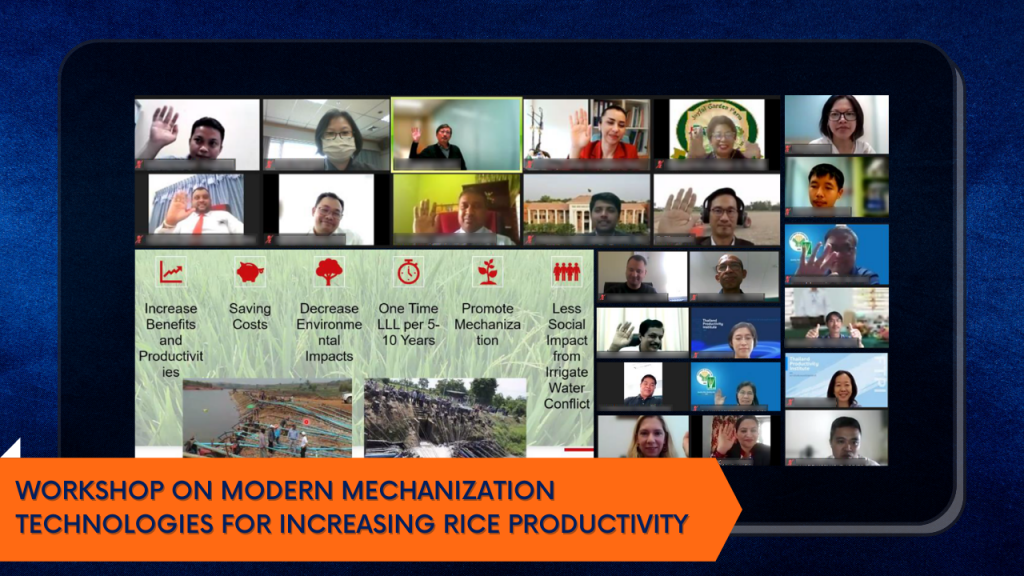
Select Page

The APO assists member countries in adopting new and next-generation technologies and practices to enhance productivity and sustainability in agriculture by showcasing proven methods. Mechanization saves labor, optimizes inputs, maximizes outputs, and expands operational size. It also contributes to environmental sustainability by supporting the efficient use of natural resources such as water and land. The quality of life of people involved in agriculture, including women and the elderly, is improved by the increased safety, ease, and comfort in work provided by mechanized methods.
Rice is consumed by over 50% of the world’s population and is the staple food in the Asia-Pacific. To feed the growing population, rice productivity must be continuously improved. In an effort to enhance rice productivity in APO member countries, a workshop on Modern Mechanization Technologies for Increasing Rice Productivity was held by the Thailand Productivity Institute and APO Secretariat, 24–26 November.
The workshop shared the latest, innovative mechanization methods in rice production, good practices in Thailand and the Philippines, and strategies and actions for promoting mechanization of rice cultivation in member countries. The workshop was attended by 21 participants from nine countries and implemented with the support of two resource persons from Thailand and one each from Japan and the Philippines. An interesting feature of the workshop was a virtual field tour to illustrate how Thai farmers have benefited from advanced mechanization technologies in rice production. The participants recognized the importance of mechanization for its contributions to sustainability as well as productivity and explored methods to encourage its adoption in rice farming in their countries under different circumstances.